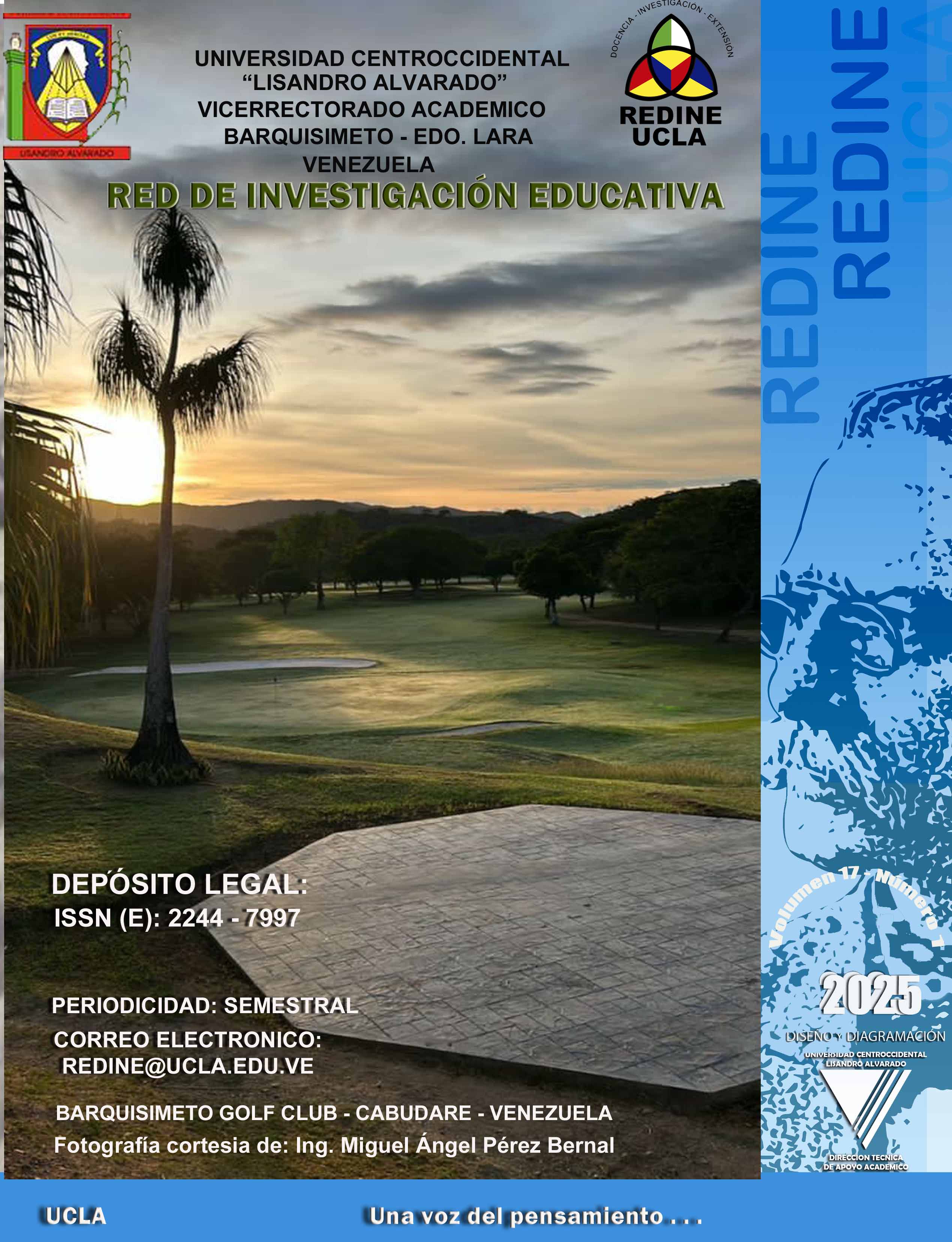Resolving teaching practice mediated by Information and Communication Technologies (ICT) in the Pedagogical Institute of Barquisimeto
DOI:
https://doi.org/10.5281/zenodo.14548667Keywords:
teaching practice, information and communication technologies (ICT), curricular integrationAbstract
The intention of this essay focuses on rethinking the teaching practice mediated by technologies at the Barquisimeto Pedagogical Institute and aims to generate reflections on the didactic and curricular work of the teacher conceived as a Being that manages and transforms the teaching practice through the integration of Information and Communication Technologies (ICT) from the curricular dimension. Learning and teaching with (ICT) as mediating instruments in knowledge management processes (production, promotion, dissemination and dissemination of new knowledge), requires continuous reflection on academic and curricular processes, this leads to thinking about how is carrying out teaching activities within the university. Finally, teaching practice within the framework of virtual training processes must be assumed as a process oriented from the rationality of the teacher as an educational subject, which assumes the articulation between the conception of education, the curriculum, and technologies as key elements. , specific to the teacher, on which the institution needs to work to make adjustments and transformations, this in order to guarantee academic training that allows achieving the pre-established competencies in the curricular design and that is consistent with current educational demands.
Downloads
References
Acebal, A. (2006). Factor humano en la educación a distancia. Argentina: Alción.
Bautista, G., Borges, F. y Forés, A. (2011). Didáctica Universitaria en Entornos Virtuales de Enseñanza –
Aprendizaje. Madrid: Narcea.
Cabero, J. (2016). Nuevas miradas sobre las TIC aplicadas en la educación. Junta de Andalucía.
Cabero, J. (2015). Reflexiones educativas sobre las tecnologías de la información y la comunicación
(TIC). Revista CEF, 1(1), 19-27. https://doi.org/10.51302/tce.2015.27.
Carr, W. y Kemmis, S. (1998). Teoría Crítica de la Enseñanza. Madrid: Ediciones Martínez Roca.
Contreras, M. y Contreras A. (2012). Práctica Pedagógica: Postulados Teóricos y Fundamentos
ontológicos y epistemológicos. Revista Digital de Historia de la Educación. http://www.saber.ula.ve/bitstream/123456789/37309/1/articulo17.pdf
Fierro, Fortuol y Rosas (2000). Transformando la práctica docente, una propuesta basada
en la investigación acción. Maestros y Enseñanza. México D.F: Paidós.
Pérez-Ruíz, A. (2018). Práctica docente y currículo: Un marco de análisis construccionista.
Revista Electrónica Educare, 22(3), 1-15. https://www.scielo.sa.cr
/pdf/ree/v22n3/1409-4258-ree-22-03-402.pdf
Pérez-Ruíz, M. A. (2018). La formación docente como proceso de reflexión crítica y
acción transformadora. Revista de Educación y Pedagogía 23(2), 39-60
Pérez-Gómez, A. (2012). Educarse en la Era Digital. Madrid: Morata.
Sacristán, J. (2010). Saberes e Incertidumbres sobre el Currículo. Madrid: Editorial Morata.
Schwab, J. (1989). Un enfoque práctico como lenguaje para el currículo. Madrid: Ediciones Akal.
Sánchez, J. (2003). Integración curricular de TIC, conceptos y modelos. Revista Enfoques
Educaciones, 5(1), 51 – 65. https://enfoqueseducacionales.uchile.cl/
index.php/REE/article/view/47512
Suárez, N. y Custodio, J. (2014). Evolución de las tecnologías de información y comunicación
en el proceso de enseñanza-aprendizaje. Revista Vínculos, 11(1).
https://revistas.udistrital.edu.co/index.php/vinculos/article/view/8028
UNESCO (2016). Informe CEPAL. La Educación en tiempos de pandemia Covid-19. Informe especial. https://repositorio.cepal.org/server/api/core/bitstreams
/c29b3843-bd8f-4796-8c6d-fcb9c139449/content
Zambrano, A. (2000). La mirada del sujeto educable. La pedagogía y la cuestión del otro.
Bogotá: Ecoe Ediciones.
Published
How to Cite
Issue
Section

This work is licensed under a Creative Commons Attribution-NonCommercial-ShareAlike 4.0 International License.
Copyright from the year of publication
This work is licensed under a:
Creative Commons Reconocimiento-NoComercial-CompartirIgual 4.0 Internacional (CC BY-NC-SA 4.0)
The opinions expressed by the authors do not necessarily reflect the views of the publication's editor or UCLA. Total or partial reproduction of the texts published here is authorized, provided that the complete source and the electronic address of this journal are cited. Authors have the right to use their articles for any purpose, provided it is done on a non-profit basis. Authors may publish the final approved version of their work online or in any other medium after it has been published in this journal.




